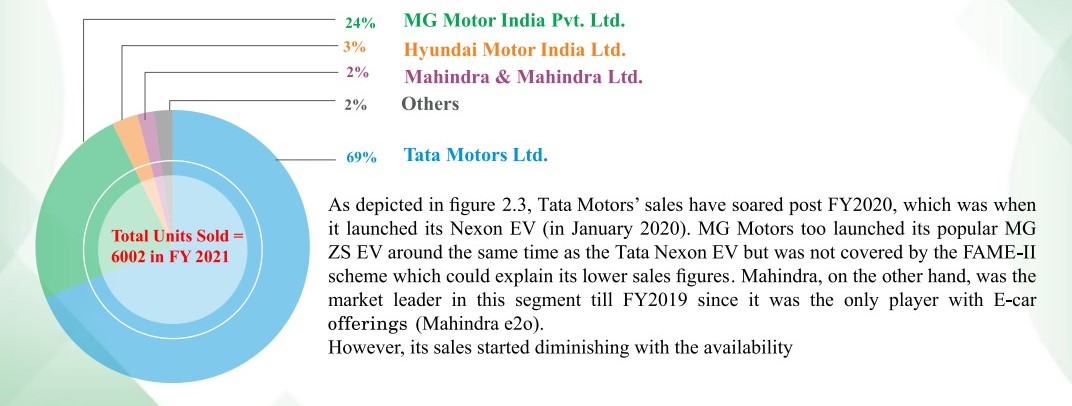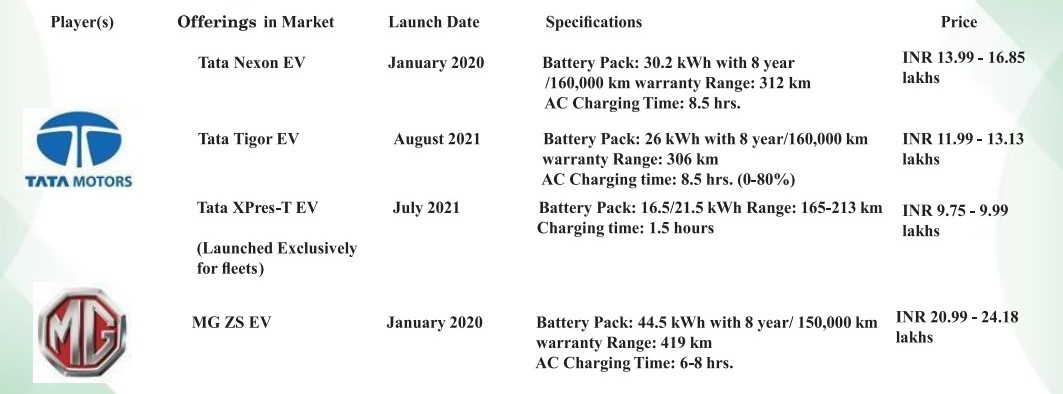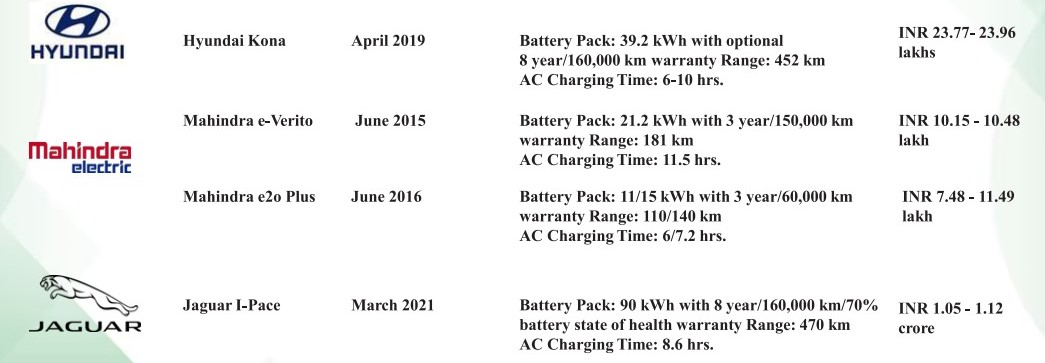About Us

About Company

MOTOR
250 WATT UPTO 3000 WATT (WATERPROOF)

BATTERY
LITHIUM ION/ LEAD-ACID

RANGE
FROM 50 KM* UPTO 200 KM* PER CHARGE

TOP SPEED
17* TO 25* KMPH

CHARGING TIME
3-4 HOURS/ 6-8 HOURS

CLIMBIMG CAPACITY
30.0 DEGREES
Olga Electric is one of the upcoming company in EV industry, who provide eco-friendly Battery Operated vehicles. Company specialised in dealing with e-cycles, e- scooter (registered & non registered), e-Bike, e-Rickshaw & Loader, e-Auto & Loader and most importantly EV charging station. With the current scenario of rising fuel cost and increasing air pollution, our product range profile is a great relief to general population and the environment. We offer a wide range of EV product category which dominate the Indian roads. Manufactured instate of the art facility, we offer reliable performances. Our contemporary design and use of right material make us the cost competitive option in the market today. Unlike our competitors, we do regular testing of our products which delivers complete customer experience
D.R.I.V.E
- People Empowering people to act like owners.
- Dependable
- Reliable
- Innovative solutions to create Value for stakeholders
- Effective empowerment

MISSION
- People Empowering people to act like owners.
- Customer Exceeding Customer Expectations.
- Stake Holders Adding value for stake holders.
- Work place Functioning with energy and passion.
- Environment Driving quality,safety and environmental care.
- Effectiveness Emphasis effectiveness through efficient actions.

VALUES
- Respect Treat everyone with dignity and respect.
- Integrity Say and doonly what is right.
- Diversity Embrace the diverse perspectives.
- Growth Work to wards growth as away of life.
- Inclusion Maintainan open and inclusive environment in team Autoline.
- Quality Right the first time, on time, everytime.
Olga Electric India is a brand, which is 100% Indian. We bring huge experience from Aviation Sector & Consumer Durable sector for over 30 years. We are proudly tied up with most significant brands and products under one roof. Olga Electric Automobiles, is a start-up company that offers wide range EV products such as E- Cycle & Kit, E-Scooty / Scooter, E-Bike, E-Rickshaw /Auto, E-Loader, E-Garbage Collection and top of it EV Charging Stations. Today, It’s founder Ms. Itisri Nandini & Mr. Gyanendra Mohanty and her team C.E.O. Mr. S. Kapoor have been trying very hard to provide best of the solution to end user. We have thoroughly examined all product through different tests and deliberation with our OEMs, so that the consumer get a high quality products. We believe that our business is not just about building a huge pro customer base but at the same time building a better, cleaner and greener future for the generations to come. We pledge to promote eco-friendly products in the market place to contribute towards our society in a small way. As an ambitious entrepreneur of India’s evolving EV market, we wish to provide an affordable eco- friendly technology. The company envisions serving consumer with its innovative yet very reasonable, pocket friendly and quality products. “Stylish Quality Products with full of Innovation and Comfort”
The adoption of Electric cars (E-Cars) globally has witnessed a surge, with sales in the first half of 2021 already surpassing the 2020 sales. Similar trends can be observed in India too. However, this growth is not at the same scale as in other countries. For instance, while the share of Battery Electric vehicles (BEVs) in the total number of passenger vehicles sold in Europe was 5.4%, the same in India was a minuscule 0.2% in FY2020. However, as per SVT Mobility projections, E-Cars are expected to account for nearly 12% of all passenger cars by FY2026.
Over the last four years, the E-Car sales have been driven by two players, namely Tata Motors and Mahindra, which together account for 80% of the total market. These players have single models each, which are available for prices between INR 8 lakh and INR 14 lakhs. However, the absence of options in the affordable segment (Price < Rs. 8 lakhs) could translate to slower adoption of E-Cars. Other notable barriers to E-Car adoption are range concerns, lack of charging infrastructure, absence of financing mechanisms, and safety concerns among end users regarding the batteries.
In India, compared to its global counterparts, the growth of E-cars has been particularly slow. As depicted in figure 2.1, the growth of E-cars remained stagnant between 2015 and 2019. However, sales have increased post- 2019, with a 361.78% y-o-y increase in 2020. The 2021 registrations, as of July 2021, have further increased, having already crossed the 2020 sales figure. While the growth is impressive, E-cars accounted for a minuscule 0.2% in 2020 of the total passenger vehicle registrations in India.
The debate on the grounds of whether e-vehicles are good or bad for India doesn’t need many convincing factors.
Facts
• Out of the 10 most polluted cities in the world, India has 6 cities. The biggest reason for this increase in pollution is fossil fuels. Almost all the vehicles in India, ranging from two-wheelers, four-wheelers, and even trains in some areas run on fossil fuels.
• India’s Oil Import-India’s total dependence on crude oil imports is 86%, which means only 14% of the nation’s energy requirements are met by the nation; the rest is imported. Nevertheless, these imports require US Dollars, which also leads to the decrement of the Indian Forex Reserve.
• Global Climate Change, Heat Emission, Paris Climate Accord and the influence of advanced Artificial Technology on Self-Driving Cars. The next revolution in the world of mobility is undoubtedly e-vehicles. All these points justify the switch from fossil fuels to e-vehicles. All the developed nations are already making
a shift to e-vehicles
When we talk about e-vehicles, we have to be very certain about the source of electricity. If we are shifting to electric vehicles but producing electricity from coal, the issue of pollution will remain. Hence, the right way to go about it would be the electricity produced by renewable energy, and, simultaneously, electric vehicles should also use the same source of renewable electricity
In the current scenario, if a person has to go a long distance because he has a low charge in his e-vehicle. The options for him to re-charge are very minuscule. In India, we have 70,000 filling stations in about 718 districts. Within every 5-6 km, a filling station can be easily located. On the other hand, there are only 300 charging stations for EVs. In such a scenario, a person with an electric vehicle will face a troublesome journey. To conquer this problem, the government is taking steps, but the pace is comparatively slow.
If a person wants to buy a medium car in India, let’s assume a Maruti Suzuki Swift. The on-road price of the vehicle in the petrol variant is 6-7Lakhs. On the other hand, the electric car offered by Tesla starts at 60 lakhs in India. India is a price-sensitive market and a shift to e-vehicles will only be sustainable if it is affordable
India has a huge technology problem. If we talk about a general Maruti Suzuki Swift Petrol car, it has a fuel tank capacity of 40 litres. If the mileage is 15 km per litre, the car can go up to 600 km. Similarly, in terms of technology, if we talk about a completely charged vehicle, will it cover the same distance? In India, we have a popular EV car named TATA TIGOR. On a complete charge, it can go up to 306 km on Indian roads as quoted by the company
Due to a lack of technology, India has to import most of the e-vehicle materials. The battery component in an EV is very crucial. Currently, all the batteries run on Lithium-Ion Technology. Again, the reserve of lithium in India is questionable. Therefore, for most of the battery and EV electronic components, India has to import them from China, which has led to its strategic dependence on China.
India has a problem with a skilled workforce in terms of electric vehicles. The technology is new and renowned educational institutions aren’t able to adapt considering the changing EV technology of the world.
The biggest problem that the automobile sector will face would be the possible disruption of the market. Since many automobile companies like Kia, MG Morris Garages, Jeep, etc. have recently entered India and have invested heavily, electric vehicles would lead to a complete disruption in the Indian automobile market. We need a slow and steady transition to electric vehicles so that existing automobile companies will also be able to transition to EVs
A nationalized mission in the year 2019, started which focuses on the research and development of battery technology to decrease the dependence on China. With this, the government is also inviting foreign players to explore the Indian market, such as Tesla, etc. These steps are competitive, but to make a fruitful transition to EV, there’s an urge to focus on the following Focus Areas
• Charging Infrastructure
• R&D in Battery Tech
• Scour for essential metals
• Make in India EVs
• EV education
India has more than 3000 charging stations; However, India has aimed to have 20000 charging stations by the year 2023. The work of the Indian government has started and we need more PPP (Public-Private Partnership) collaboration to achieve this target. Battery technology is really important. However, the 2019 commission focuses on this alarming issue, where the motive is to diversify the dependencies from adversaries to allies, and mostly on the creation of India-based technology. The Indian government has not been very forthcoming about electric vehicle education. EV courses need to be introduced into the school curriculum. Bachelors and vocational curriculum have to be devised to solve the technology and skilled labour crisis. Another grave challenge would be how well the existing automobile industry can transit towards EV segments.
Unlike the E2W market where the consumer has many options, the E-car market has fewer players. In FY2021, Tata Motors held the largest market share of 72% with its Nexon EV model, followed by MG Motors at 22% with its ZS EV model, together making up 94% of the market. Tata’s dominance in the E-car sector is because it is currently the only e-car in the segment which qualifies for FAME-II




